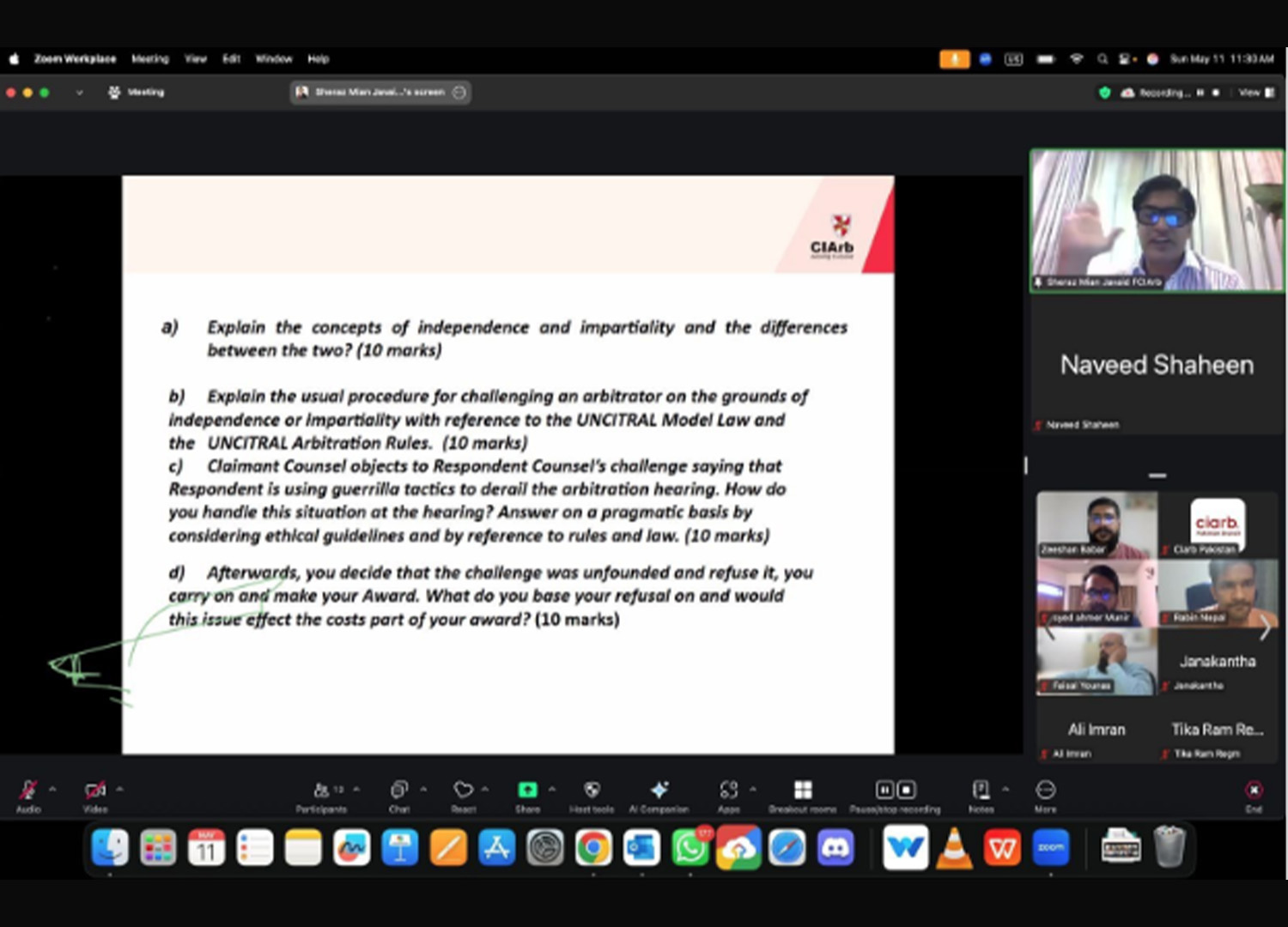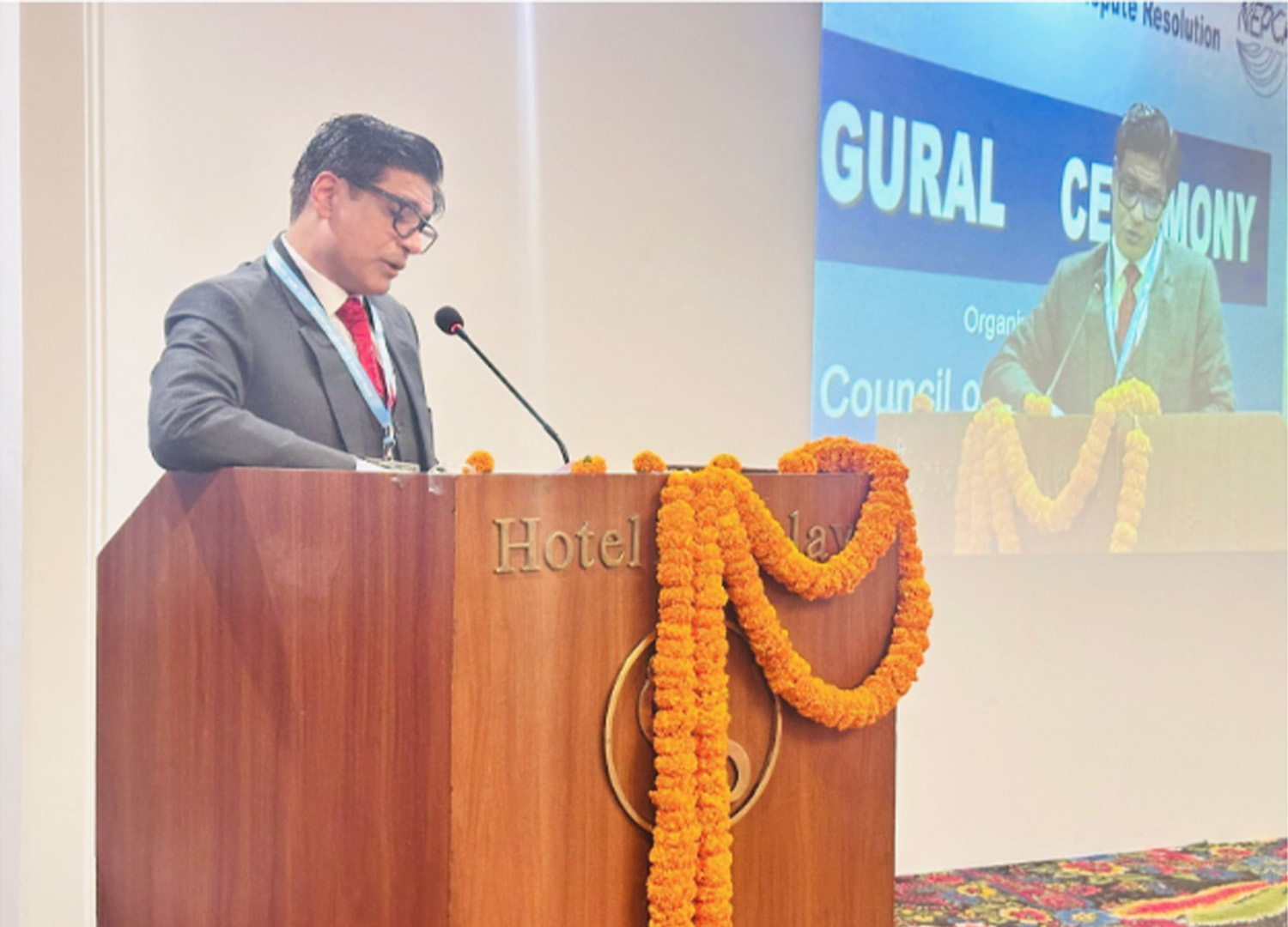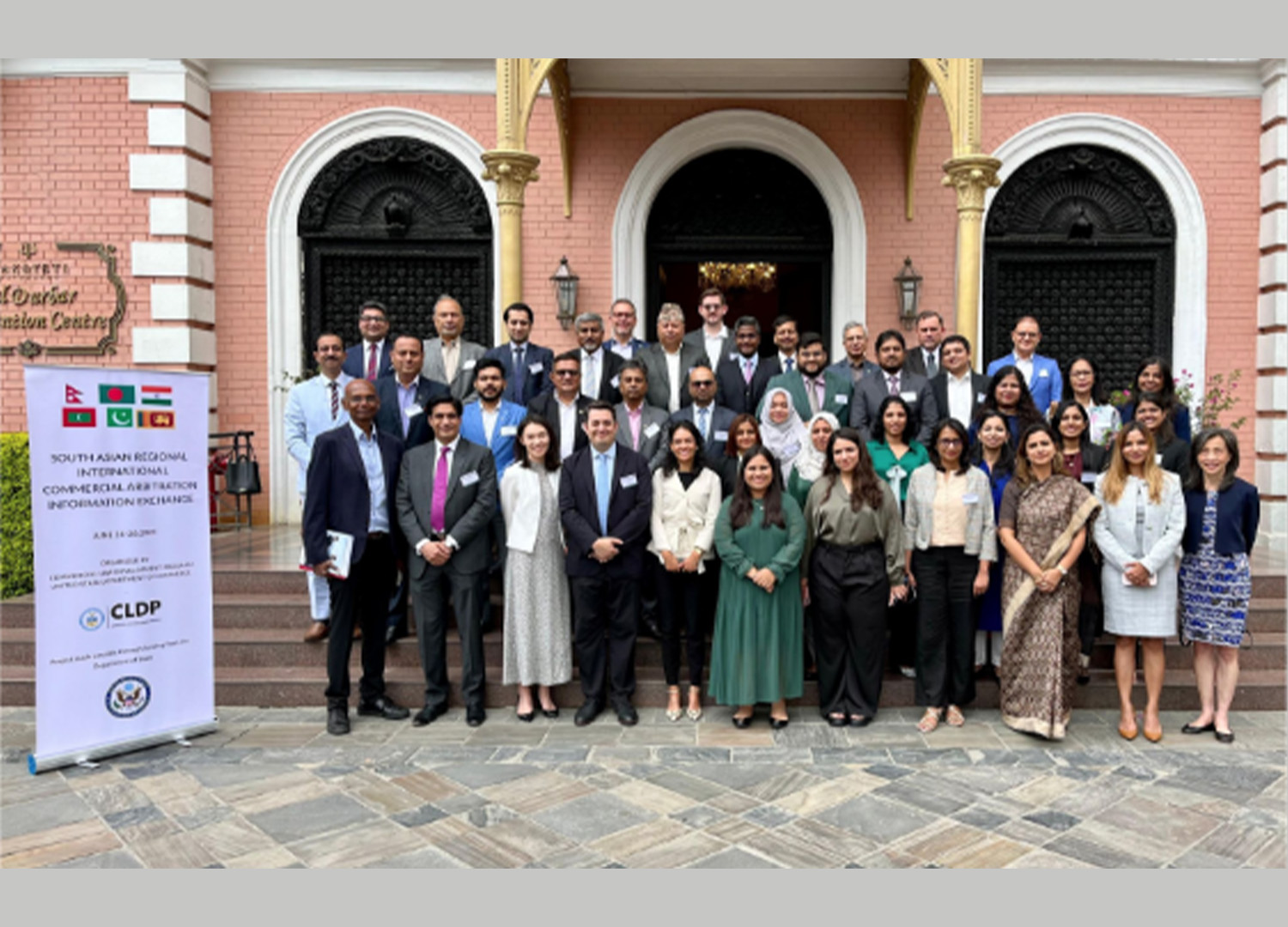Mian Sheraz Javaid Discussed Modernization of Arbitration Law at Key Event on China-Indonesia Trade
On the 28th of August, 2024, Mian Sheraz Javaid joined a distinguished panel of experts at the event titled "Arbitration's Role in Shaping Future Trade between China and Indonesia," organised by MedArbId (The Indonesian Academy of Independent Mediators and Arbitrators), the China International Economic and Trade Arbitration Commission (CIETAC), and the Asia Pacific International Arbitration Centre (APIAC).
The event, held in Indonesia, focused on the future of international arbitration and its impact on trade relations between two of Asia's most powerful economies: China and Indonesia.
Key Focus: Modernizing Arbitration Laws
Mian Sheraz Javaid delivered an insightful presentation on the pressing issue of updating arbitration laws to better suit the current trade environment. His presentation, titled "What’s Wrong with the Current Arbitration Law and Practice?" specifically addressed the modernisation efforts surrounding the Arbitration Act 2024 in Pakistan. Sheraz's focus on Pakistan was timely, as the country was making significant strides to update its legal frameworks to align them with global best practices in arbitration and dispute resolution.
Sheraz's topic was very relevant as the Asia-Pacific nations continued to modernize their arbitration laws in an effort to keep pace with the rapid growth of international trade. Arbitration has been a popular means of dispute resolution in the region for its efficiency, flexibility, and international reach. But changing trade patterns and emerging challenges in the global marketplace brought more pressure on legal systems to adapt.
"In many countries, including Pakistan, arbitration frameworks were often rooted in outdated laws that didn't fully reflect the demands of modern trade disputes," Sheraz explained during the event. "The Arbitration Act 2024 was a significant step toward modernizing Pakistan's legal infrastructure, and it was crucial to understand both the challenges and opportunities that came with this modernisation process."
Sheraz's session emphasized the practical outcomes of these changes in law, taking into account new laws that will streamline arbitration procedures and encourage more effective trade partnerships by providing more effective mechanisms for the resolution of disputes. His presentation underlined how the intricacies of adapting arbitration laws can actually be used in resolving disputes to enhance international cooperation, especially among major trading nations like China and Indonesia.
An Esteemed Panel of Speakers
The event featured a rich array of speakers, each bringing a wealth of experience in the field of arbitration. Moderated by Ilman Rakhmat, an expert in Indonesian legal affairs, the panel explored the evolving landscape of international arbitration within the Asia-Pacific region. Other key figures in the discussion included Tony Budidjaja, Wei Ziping, Yin Tianshu, and Kendista Wantah, all of whom have deep expertise in international trade law and dispute resolution.
Together, these thought leaders addressed a gamut of critical issues pertinent to arbitration in the enhancement of China-Indonesian trade relations. Though the focus was quite largely set on how arbitration can foster better legal cooperation, discussion did border into wider concerns like making arbitration practices harmonise across jurisdictions, ensuring the neutrality of arbitration tribunals, and building trust in arbitration as a fair and effective instrument for dispute resolution.
China-Indonesia Trade Relations and Arbitration
China and Indonesia are two of the largest and fastest-growing economies in the Asia-Pacific region, and their trade relations have significant global implications. Both countries have been increasingly engaging in cross-border trade that requires robust, efficient, and reliable mechanisms for resolving disputes. This is where arbitration plays a crucial role, offering a streamlined alternative to lengthy and costly litigation in domestic courts.
Increasing China-Indonesia trade, as well as involvement in the Belt and Road Initiative (BRI), as well as other multilateral agreements, has increasingly made it imperative for both countries to bolster their respective legal frameworks for international dispute resolution. Mian Sheraz Javaid and his fellow panelists then explored how arbitration might be a catalyst for closer economic ties, for the resolution of potential conflicts that could otherwise disrupt trade flows.
"Arbitration serves as a cornerstone of international trade by providing a clear and effective means of resolving disputes," said Sheraz. "As the economies of China and Indonesia continue to grow, the importance of establishing a strong, modernized arbitration system becomes even more apparent. By doing so, both countries can foster a more stable and predictable trade environment, which in turn will benefit businesses and stakeholders across the region."
The Role of the Arbitration Act 2024 in Pakistan
Sheraz’s focus on the Arbitration Act 2024 in Pakistan highlighted the country’s efforts to align its arbitration laws with global standards. In recent years, Pakistan has faced criticism for its outdated arbitration laws, which often resulted in delays, inefficiencies, and a lack of confidence in its dispute resolution system. With the passage of the Arbitration Act 2024, Pakistan took a bold step toward modernizing its arbitration practices.
The new law aimed to introduce several key reforms, including the streamlining of arbitration processes, greater enforcement of arbitral awards, and improvements in the neutrality of arbitration panels. These changes were expected to have a profound impact on how international businesses, particularly those engaged in trade with China and Indonesia, viewed Pakistan as a destination for dispute resolution.
Sheraz discussed how these reforms would be able to make the arbitration framework more efficient and reliable in maintaining smooth trade relations. This was likely to foster greater confidence in Pakistan's arbitration system, attract more international investment, and create opportunities for increased legal cooperation between Pakistan and its trade partners in the region.
Looking Ahead: Enhancing Legal Cooperation and Arbitration Practices
The event proved to be a lively and insightful discussion, offering valuable perspectives on the role of arbitration in shaping the future of trade between China and Indonesia. Mian Sheraz Javaid, together with his fellow panelists, provided thought-provoking analyses on how modern arbitration practices could enhance legal cooperation and facilitate smoother trade relations between the two countries.
Sheraz’s reflections on the event underscored the importance of these discussions. "The future of arbitration in the Asia-Pacific region hinges on our ability to adapt and modernize our legal frameworks. By working together to enhance our arbitration practices, we can ensure that international trade continues to thrive and that disputes are resolved in a way that benefits all parties involved."
With the distinguished speakers providing invaluable insight, industry leaders, legal professionals, and trade experts took home significant knowledge, and the event proved an important step forward in the on-going development of international dispute resolution practices in Asia with respect to arbitration in shaping the future of trade relations.











